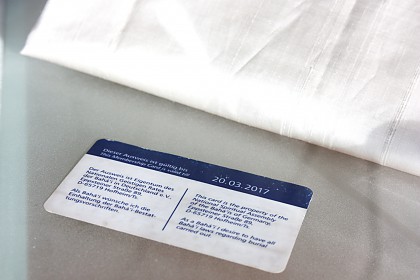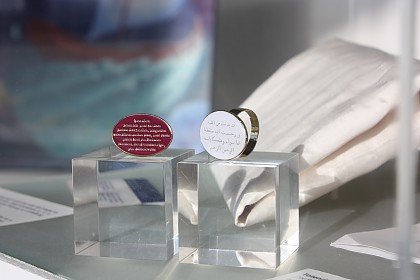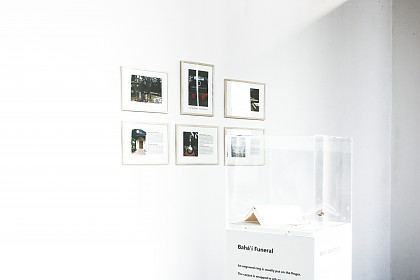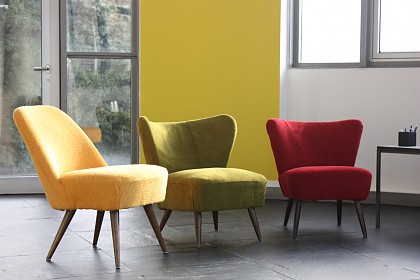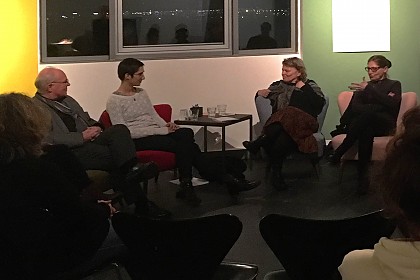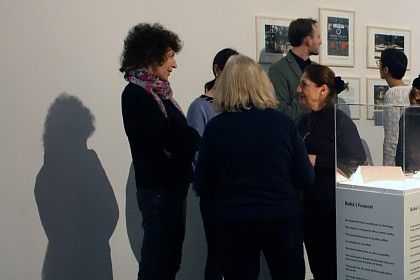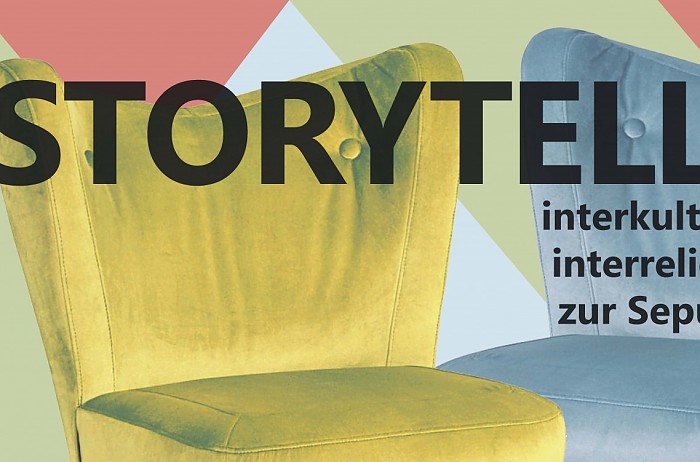

STORYTELLING
Intercultural and interreligious dialogue on sepulchral culture
The sepulchral culture of a society changes with the people. Through flight or immigration, for example, they bring with them wishes, ideas and commandments from their home countries and religious traditions to a new centre of life. New needs develop, they are adapted or agreed upon with local traditions and laws. And even without ever having changed the geographical living space by themselves, there are references to various ways of dealing with death, for example through friends or relatives.
The sepulchral culture manifests itself in material and immaterial forms. They offer references to the worlds of thought and experience of a society. Thus, objects, words and actions that accompany death can be quickly recognized. Such as funeral preparation and execution, dealing with inheritance or publicly showing grief. However, this only succeeds if the actions and signs for the fellow human beings follow a familiar sequence or a familiar symbolic language.
Storytelling should convey this complex knowledge of diverse backgrounds. The telling of stories of concrete experiences fathoms facts and brings them to life with images and emotions.
A regular jour fixe takes place here, in which personal storytelling is the focus.
The exhibition should grow with every Jour Fixe. Unfortunately, the event format is no longer feasible due to the temporary closure caused by Corona and the current security regulations. Therefore, the exhibition must now be further filled without the Jour Fixes taking place.
#1: Bahá'í Community Kassel
Thursday, January 23, 2020, interested parties and friends of the museum met with the Bahá'í community Kassel for the start of the new event and exhibition series "Storytelling" in the Museum of Sepulchral Culture. The theme of the first evening was the "Grave in a Foreign Land", because according to the burial regulations of the Bahá'í, a religion that originated in what was then Persia in the 1840s and spread throughout the world, the place of burial should be no more than one hour away from the place of death – even far away from home or while traveling. With personal experiences and a lively discussion, we have approached various religious, cultural or personally influenced forms of burial. Every month a further public Jour fixe is to take place, at which we will exchange views on intercultural and interreligious aspects of sepulchral culture in Germany under changing thematic focuses.
Due to the corona pandemic, further events planned for 2020 were unfortunately cancelled.
Arbeitsgemeinschaft Friedhof und Denkmal e.V.
Zentralinstitut für Sepulkralkultur
Museum für Sepulkralkultur
Weinbergstraße 25–27
D-34117 Kassel | Germany
Tel. +49 (0)561 918 93-0
info@sepulkralmuseum.de



